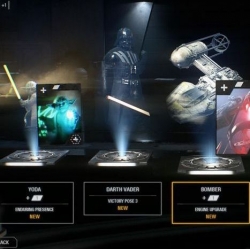
Loot boxes have been around for more than 10 years, but Star Wars: Battlefront brought the debate to mainstream circles.
The U.S. Federal Trade Commission (FTC) announced it would investigate the use of loot boxes in video games. The FTC is addresses concerns by gaming industry watchdogs and parents groups who are concerned that loot boxes are a form of underage gambling.
Regulators in several other countries have ruled on loot boxes, including France, Belgium, The Netherlands, and New Zealand. The Australian government has commissioned a study on them, while an online petition on the British parliament’s official website triggered a mandatory debate on the issue in May 2019.
The decisions have been split so far, with regulators on France and New Zealand saying loot boxes do not conform to the standard definition of gambling. Dutch and Belgian authorities have ruled differently.
In the United States, state officials in Washington are the only regulators to have addressed the issue. Valve, the company which owns the popular online gaming site, Steam, was ordered by the Washington Gaming Commission to police third-party sites which allow underage children to gamble on loot boxes.
What Is a Loot Box?
Readers who do not play video games or online games might not be famililar with a “loot box“. Also called booster packs, loot crates, or skins, a loot box is an in-game item or enhancement.
Japanese game designers in the early 2000’s first introduced loot into video games. Gachapon tickets in the Japanese version of the MMORPG MapleStory is thought to be the first instance of loot boxes added to a game. These were simple add-ons to make the game more interesting, usually appearing in the form of bonus lives, extra playable characters, costumes, equipment, or weapons.
The History of Loot Boxes
Over time, publishers realized how valuable loot boxes could be. They began to offer them as in-game purchases. Some customers complained that loot-for-pay gave more affluent or obsessed players unfair advantages, but the debate only went that far.
In the past two to three years, as loot boxes became more widespread and pervasive in games, the debate has morphed into a question of whether loot boxes are legal at all. A handful of lawsuits involving children maxing out their parents’ credit cards for loot gained mainstream attention.
Star Wars Battlefront 2 is seen by many as a watershed, because it used a random number generator to decide what is inside a booster pack.
How Do Loot Boxes Work
Players can collect loot boxes through achievements or experience in the game, but in certain games, they can be bought as in-game purchases. The player pays anywhere from $1.99 to $99 for a booster pack, which gives players rare weapons, protective armor, or upgrades for cash.
The random nature of loot boxes are the key concern. Some loot is rarer or more valuable than other loot. Because the prize given is randomized, many see paid booster packs as a form of gambling.
Defenders of Loot Crates
Some gaming analysts argue that random prizes are an old tradition in children’s hobbies. They point to the random nature of baseball card packs for the past several generations. Children have bought baseball cards hoping to receive rare cards or rookie cards of future Hall of Fame players for the better part of a hundred years.
Even gumball machines offered random prizes for real money, yet they have existed in US grocery stores, gas stations, and restaurants for generations.
Others point to the fact children can gamble on third-party sites for loot. On such sites, a gamer put his or her loot against another gamer’s loot in a 50/50 contest. Thus, real money virtual items are gambled for real world consequences.
Critics compare loot boxes to slot machines, due to the use of RNGs. In light of the growing debate in the international gaming scene, it was only a matter of time before the Federal Trade Commission took a look at the phenomenon.
How Will FTC Rule on Loot Boxes?
Given the vast amount of money game publishers make in the US video game and computer game market, the FTC’s decision on loot boxes could have profound consequences for the industry. If the FTC rules that loot boxes are gambling, it could announce a federal ban on loot boxes in the United States.
Game publishers have relied increasingly on loot boxes to boost profits, so the loss of the US market could be a disaster. Even if the FTC does not decide on a federal ban, the publicity it creates in the United States could cause ambitious and publicity-seeking state lawmakers and office holders to push for loot box bans in individual states.
